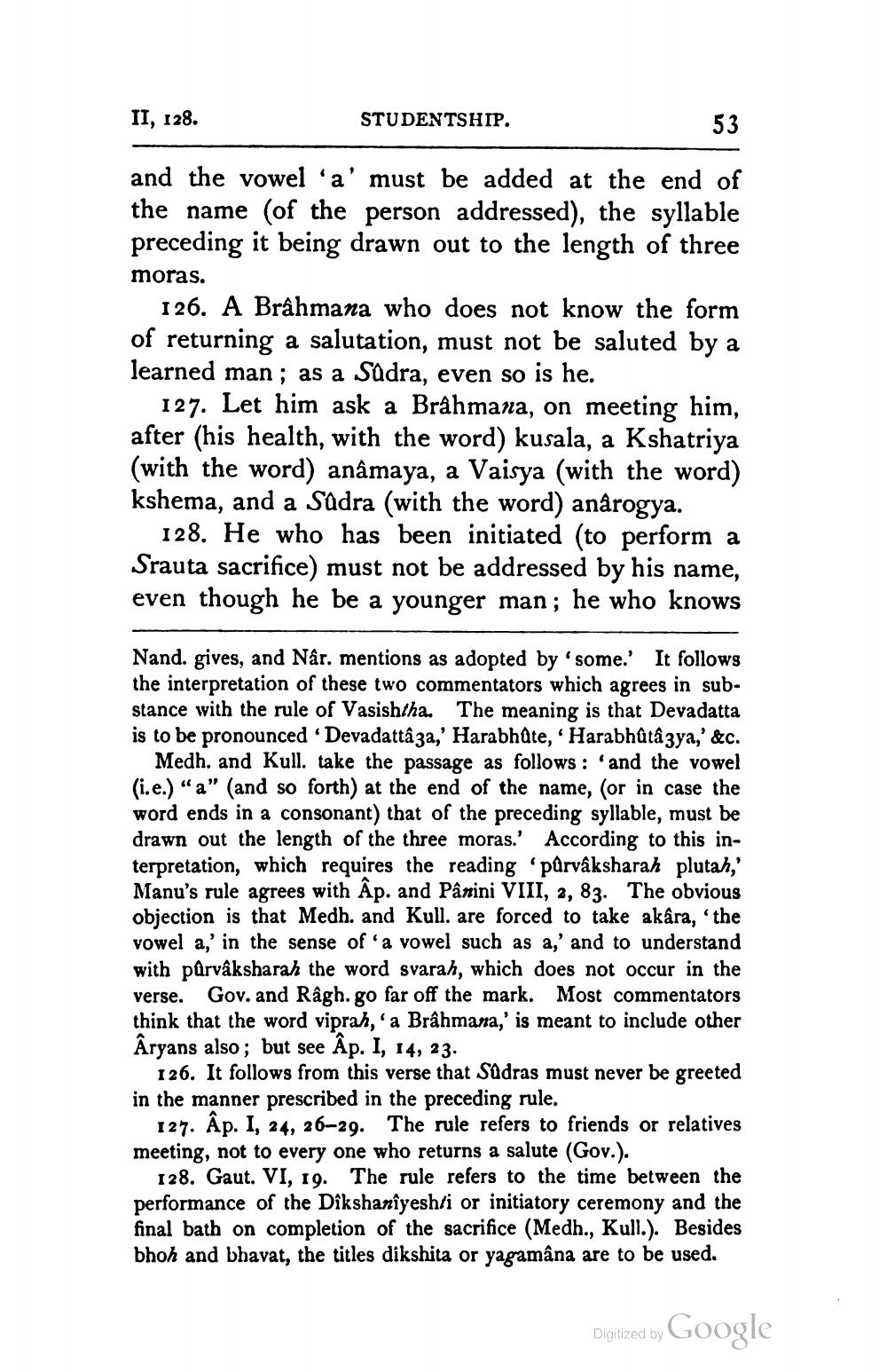________________
II, 128.
53
and the vowel 'a' must be added at the end of the name (of the person addressed), the syllable preceding it being drawn out to the length of three
moras.
126. A Brahmana who does not know the form of returning a salutation, must not be saluted by a learned man; as a Sûdra, even so is he.
127. Let him ask a Brahmana, on meeting him, after (his health, with the word) kusala, a Kshatriya (with the word) anâmaya, a Vaisya (with the word) kshema, and a Sûdra (with the word) anârogya.
128. He who has been initiated (to perform a Srauta sacrifice) must not be addressed by his name, even though he be a younger man; he who knows
STUDENTSHIP.
Nand. gives, and Nâr. mentions as adopted by 'some.' It follows the interpretation of these two commentators which agrees in substance with the rule of Vasishtha. The meaning is that Devadatta is to be pronounced 'Devadattâza,' Harabhûte, 'Harabhûtâзya,' &c.
Medh. and Kull. take the passage as follows: 'and the vowel (i.e.) "a" (and so forth) at the end of the name, (or in case the word ends in a consonant) that of the preceding syllable, must be drawn out the length of the three moras.' According to this interpretation, which requires the reading 'pûrvâksharah plutah,' Manu's rule agrees with Ap. and Pânini VIII, 2, 83. The obvious objection is that Medh. and Kull. are forced to take akâra, 'the vowel a,' in the sense of a vowel such as a,' and to understand with purvâksharah the word svarah, which does not occur in the Gov. and Râgh. go far off the mark. Most commentators think that the word viprah, 'a Brâhmana,' is meant to include other Aryans also; but see Âp. I, 14, 23.
verse.
126. It follows from this verse that Sûdras must never be greeted in the manner prescribed in the preceding rule.
127. Ap. I, 24, 26-29. The rule refers to friends or relatives meeting, not to every one who returns a salute (Gov.).
128. Gaut. VI, 19. The rule refers to the time between the performance of the Dîkshanîyeshi or initiatory ceremony and the final bath on completion of the sacrifice (Medh., Kull.). Besides bhoh and bhavat, the titles dikshita or yagamâna are to be used.
Digitized by Google




